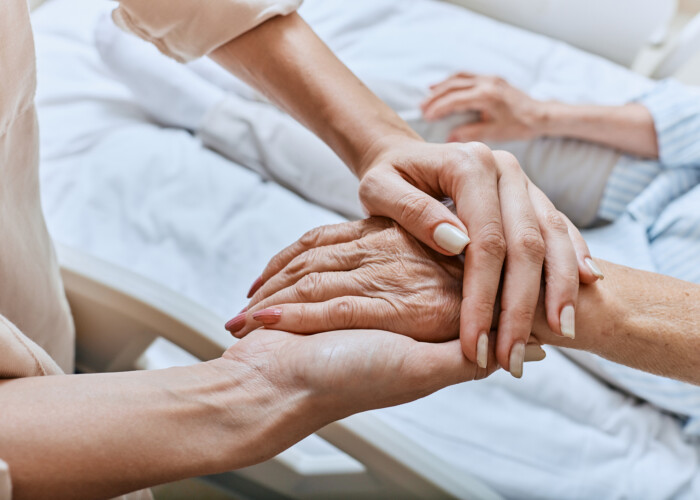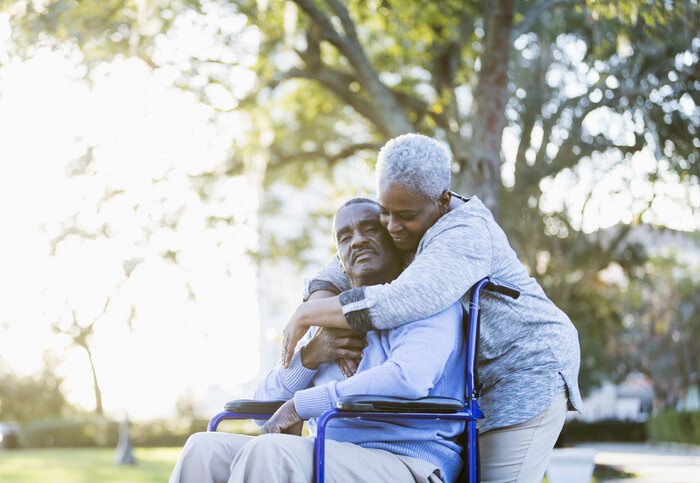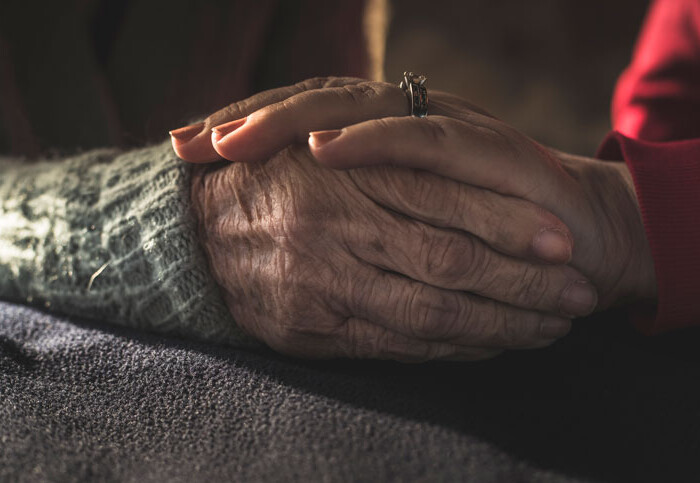Hospice Assistance
The Emotional Journey of End-of-Life Eating Changes
When a loved one is approaching the end of life, every moment becomes even more meaningful, but it can also be a time of great emotional difficulty. One of the changes you may notice is their decreasing interest in food and drink, which can be especially distressing. Watching someone you care about stop eating can leave you feeling worried, helpless, and unsure of how to help. However, understanding why these end-of-life eating changes happen and focusing on providing comfort rather than nourishment can ease this challenging time for both you and the person you love. The goal shifts from ensuring they eat to making sure they are comfortable and at peace.
Why Eating Changes Occur at the End of Life
As a person’s body prepares for the end of life, their need for food and drink diminishes. Metabolism slows, … Read More »
What You Need to Know About End-of-Life Dementia Care
Caring for a loved one as they near the end of life is an incredibly personal journey. When Alzheimer’s disease is part of this experience, the path can become even more intricate. Unlike many other terminal illnesses, dementia progresses in unpredictable ways, requiring us to adjust our approach to end-of-life dementia care.
Identifying End-of-Life Signs in Dementia
In many diseases, the end-of-life stage is marked by noticeable changes in areas such as eating, sleeping, and socializing, often appearing two to four months before death. However, with Alzheimer’s disease, these indicators can emerge much earlier, sometimes even years in advance. These are the key signs to watch for:
Extended Sleep Patterns: Long periods of sleep can occur well before the final stages of life in someone with dementia. While this may be an early sign, it can also continue over a … Read More »
Walking Each Other Home: How to Ease End-of-Life Care
Learn how to ease end-of-life care with these tips.
Although the holiday season may be filled with joy, it can also spark feelings of loss and nostalgia for loved ones who are no longer with us. It’s also an incredibly poignant time for anyone who is caring for a loved one nearing the end of life. The ebbs and tides of life, as we know, do not always follow our schedules, routines, or desired outcomes. It becomes crucial to know how to ease end-of-life care to bring much-needed comfort during this trying time.
If you are in the midst of a season of providing end-of-life care, here are some thoughts to keep in mind that will help you best help the person in your care – as well as yourself.
Provide a calming environment. Ram Dass, author of … Read More »
Separate Truths From Myths About Hospice Care
Learn some of the most common myths about hospice care and the true facts about this incredibly beneficial form of care.
If you knew that a significantly better quality of life could be achieved for someone you care about, you would not think twice about exploring that option. Yet one of the most beneficial forms of care – hospice – is one that family members shy away from, due to many different misperceptions and myths about hospice care.
Hospice is meant to help someone with a life-limiting illness find respite from pain and other difficult symptoms, while obtaining comfort as well as spiritual and emotional support. Hospice care is provided night and day, both for the individual needing care as well as family members. And, for anyone covered by Medicare, hospice care is offered for a very low … Read More »
End-of-Life Care Tip: Participating in Tough Conversations
When providing end-of-life care, one of the best gifts you can offer is a listening ear.
Sharing what’s on our hearts with those we love is never more important than when someone is nearing the end of life. There are often unspoken sentiments and unresolved issues that, once verbalized, can bring peace and a deeper connection with our loved ones in their final days.
As Dr. Jessica Zitter, physician in critical and palliative care medicine at Highland Hospital in Oakland, CA explains, “Those are opportunities for people to take stock and say, ‘I want to be more intentional about how I want to relate to people in my life.’ Death should really be seen as the last opportunity that you have to make amends and clean things up before you’re in the next world, wherever that may be.”
Read More »
Key Questions to Ask the Dr. as a Parent’s Caregiver
Every family caregiver should get answers to these questions from the doctor.
Of the many responsibilities a family caregiver faces, perhaps one of the more difficult is managing health concerns and knowing what questions to ask the Dr. as your parent’s caregiver. The National Council on Aging estimates that approximately three quarters of all seniors are clinically determined to have at least two chronic illnesses, and are seeing on average of four medical specialists.
Hired Hands Homecare, offering in-home care in Napa, CA and the surrounding communities, offers these simple tips to communicate effectively with those on the senior’s medical team:
Are all of the medications essential? With most older adults taking many medications, you’ll need to keep an in-depth list and review occasionally with the doctor along with the pharmacist, each of whom should be able to make … Read More »
How a Hospice Referral Can Provide Comfort and Eliminate Fear
A hospice referral can help patients meet end-of-life goals.
We often educate on the importance of not delaying a hospice referral because we believe an earlier referral allows the patient and his or her family to better prepare mentally and spiritually for the end of the patient’s life. Yet a common misconception that hospice care is merely symptom management often leads to a later referral. In fact, hospice care involves many additional benefits to provide comfort:
Provides assistance in obtaining appropriate equipment and medications
Empowers families to take care of their loved one in the comfort of home
Helps alleviate the fear that often occurs for patients and their families
Helps a spouse with Social Security issues, financial issues, and long-term care questions
Addresses family dynamics and spirituality concerns (if any exist)
Hospice is not about dying, but about quality of life … Read More »
Hospice Care Brings Peace and Quality of Life to Patients
Hospice care provides comfort for a loved one and his/her family.
Determining when to shift focus from proactive cure attempts to hospice care can be difficult for the loved ones of someone diagnosed with a life-limiting condition. Understanding what hospice care is and the benefits it provides is a crucial first step. Hospice care offers supportive social, emotional, and spiritual services to the terminally ill and their families, primarily in the patient’s home.
Hospice is typically recommended when:
The senior’s physician does not believe there is a viable treatment option available.
The prognosis is six months or less to live.
The patient is enduring treatment that is neither life-prolonging nor enhancing quality of life just to avoid addressing the unpleasant facts with family and loved ones.
Family and loved ones are postponing a discussion about end of life because of a … Read More »
Advance Health Care Directives Provide Peace of Mind
Advance health care directives help individuals ensure their care wishes are met.
Life is unpredictable. And although an advance health care directive can be easy enough to put off, planning end-of-life choices now can help provide peace of mind that your standards and wishes about your health care will be listened to in the future. Additionally, it will ease the responsibility of decision-making on your family members.
Advance directives typically include these documents:
Living will. This written, legal document outlines the kinds of health care procedures and life-sustaining measures a patient would or would not like, such as mechanical breathing (respiration and ventilation), tube feeding or resuscitation.
Health care power of attorney (POA). The health care POA is a legal document that identifies an individual to make health care decisions on the patient’s behalf if the patient … Read More »
Accepting a Chronic Disease Diagnosis Is Beneficial for Seniors and Their Family Members
Facing a chronic disease diagnosis head-on does not mean giving up.
In Isaac Asimov’s opinion, “The easiest way to solve a problem is to deny it exists.” It’s a standard feeling for many family caregivers when their loved one is faced with a chronic disease diagnosis, such as dementia. Even though this can instill some measure of comfort in thinking that life can carry on like it always has, if only we don’t acknowledge this new reality, the truth is that acknowledgement is extremely important in order to get the necessary support.
It is understandable for a family member to wish to deliver all of the care a senior loved one needs. Nevertheless, frequently in the crux of denial are feelings of guilt, helplessness, and in some cases incompetence in the ability to “fix things.” And you will … Read More »

















